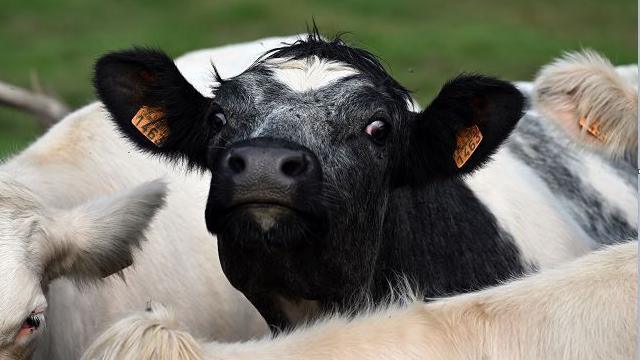Don't let people hug and kiss lambs, farmers told
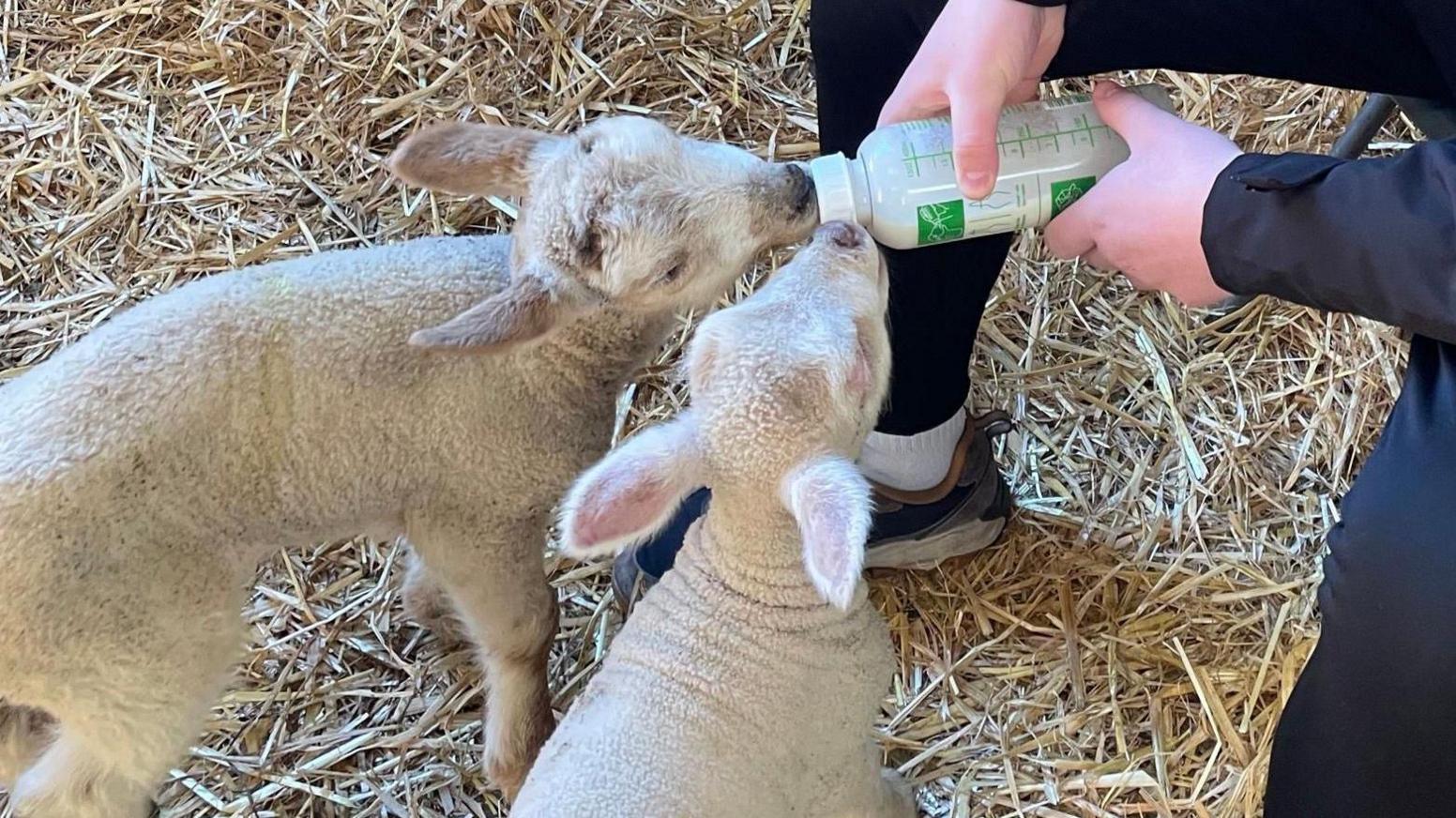
Cryptosporidium is commonly associated with contact with farm animals and can spread easily from person to person
- Published
Visitors to farms for lamb feeding events are being warned not to kiss, cuddle and hold the animals after an outbreak of a parasitic infection that causes serious gastrointestinal illness.
Public Health Wales (PHW) has advised farmers running the events to avoid offering close contact with lambs.
There were 17 outbreaks of cryptosporidiosis, external linked to farms in England and Wales in 2024, while earlier this year more than 80 people fell ill due to infections linked to a petting farm in Vale of Glamorgan.
The infection led to 16 people requiring hospital care for at least one night, including a four-year-old boy.
What is the water parasite making some people ill?
- Published17 May 2024
Number of people ill due to petting farm hits 81
- Published14 May
A report by PHW said people who had closer levels of contact were much more likely to become ill with cryptosporidium than those who did not touch the animals.
The report from the health body came after a large cryptosporidium outbreak in spring 2024 where more than 200 people became ill, 18 of whom attended hospital.
Children under the age of 10 were four times more likely to become unwell, it said.
Cryptosporidium is commonly associated with contact with farm animals, and can spread easily from person to person and poses increased risk to young children and those with weakened immune systems.
Symptoms typically appear two to 10 days after exposure and can last up to two weeks.
The advice is one of a range of recommendations made in a report into a large cryptosporidium outbreak among people.
Gareth Carpenter and Kate Wiejak's son Michael visited Cowbridge Farm Shop at Marlborough Grange Farm in Cowbridge, Vale of Glamorgan, with his grandmother, Margaret Carpenter, on 11 April this year.
The couple from Bridgend said Margaret "made sure" Michael washed his hands afterwards, and also used hand sanitiser.
But by 14 April, while the family were on holiday in Spain, Michael started to feel unwell, with a raised temperature and diarrhoea. He continued to be very unwell throughout the night and so, the following morning, they called the emergency medical services who advised them to take Michael to hospital.
Doctors said Michael had a serious infection and he spent three days in hospital.
'Seeing your child in hospital is terrifying'
On their return to Wales, Michael still had a "bad belly" and so they took him to see a GP on 22 April, who requested a stool sample.
Gareth said he received a call from PHW the following day to say the test result had shown Michael was infected with cryptosporidium.
Both Kate and Gareth later became unwell with similar, but much milder, symptoms and Gareth said he was still experiencing stomach cramps, more than four weeks after Michael's contact with the animals.
Other recommendations in the report included better provision of handwashing facilities, including basins with hot and cold running water, liquid soap and paper towels.
Hand sanitiser or alcohol gel is not effective against cryptosporidium, PHW said.
It added there should also be prominent signage advising people to wash their hands regularly while they are on the premises and visitors should ensure clothing is washed as soon as possible after the visit.
Farmers should be aware of existing guidance when planning open farm events, and provide visitors with information about the infection risks involved when booking events.
What is cryptosporidium?
Cryptosporidium is a microscopic parasite that can cause an unpleasant and sometimes dangerous illness called cryptosporidiosis
It lives in the intestines of infected humans and animals and is passed out in their faeces
It can then spread to water sources like lakes, rivers, and swimming pools, as well as food like raw milk
The illness can affect anyone but is most common in children aged one to five
Symptoms, which can last for around two weeks, include severe watery diarrhoea, vomiting, stomach cramps, nausea, fever, and loss of appetite
There is no specific treatment but most people feel better within a month
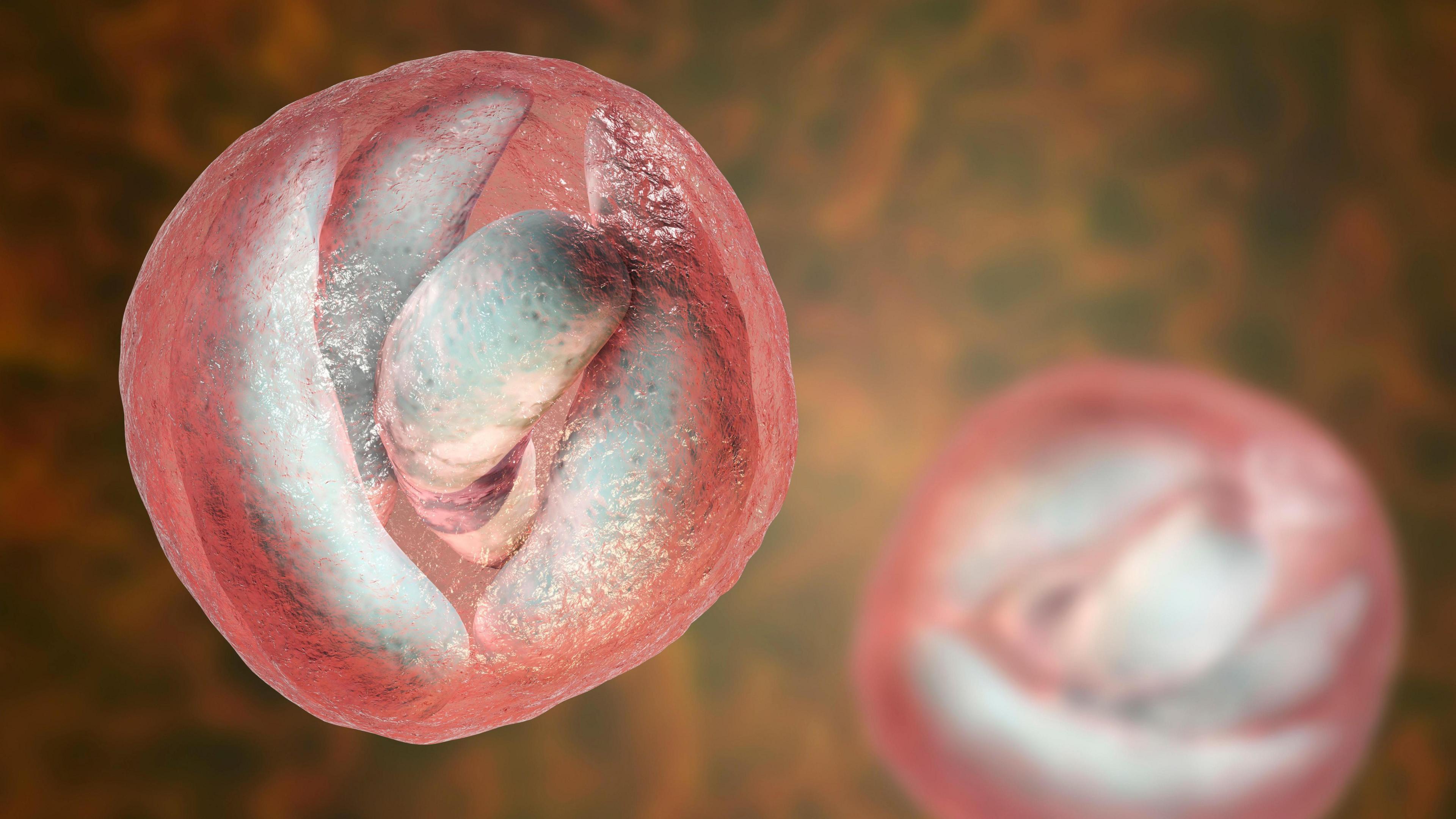
The cryptosporidium parasite causes cryptosporidiosis, a serious gastrointestinal illness
Dr Christopher Williams, consultant epidemiologist for PHW said lamb feeding events were increasingly popular, especially with families but could have serious consequences.
"This report shows that when young children have close contact with animals like lambs - when they cuddle, kiss or nuzzle their faces - then there is a significant risk of contracting the infection, which can cause serious illness and result in hospitalisation," he said.
The report recommended lamb or calf feeding was supervised and done with the animals separated from the visitors by their pens, meaning people could still bottle feed the animals but can have greater protection against illness.
Dr Williams said it was "vital" any farmers planning to hold any visitor events involving animal activities familiarise themselves with the existing guidance and take all the precautions they can to ensure their visitors had a safe experience.
He added PHW would also like to see farmers make visitors aware of the risks involved in having close contact with young animals, so people were educated before they attend.
"I would encourage any farmers who are considering opening their farms for these events to consider all the risks, and plan ahead early to enable them to make all the necessary provisions possible in order to keep their visitors safe from infection."
- Published12 May
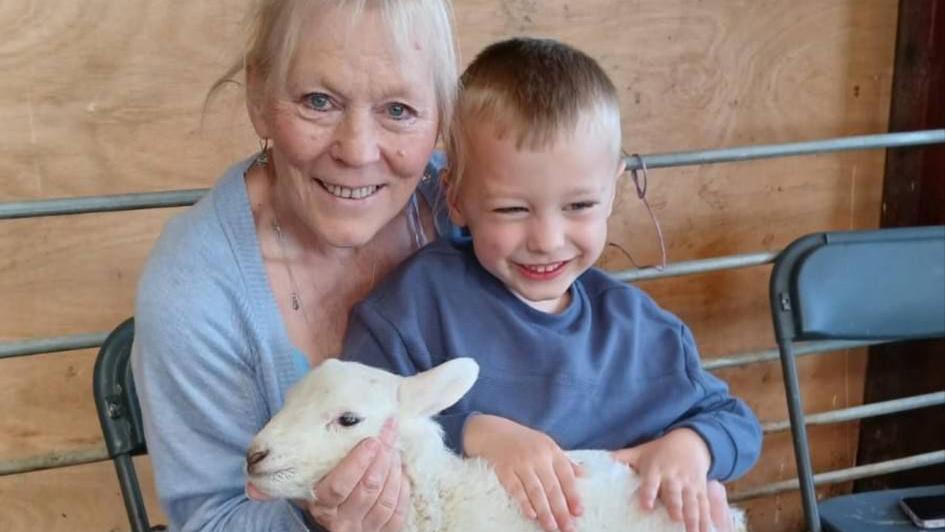
- Published29 May
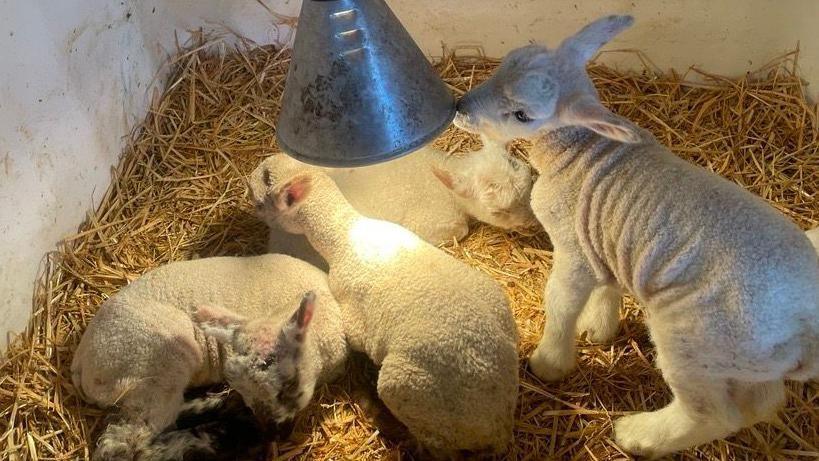
- Published22 July
